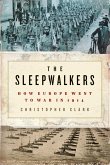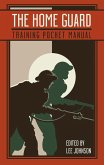Brutally and unflinchingly honest in its depiction of the effects of concentration camp life on the human psyche, Mieczyslaw Lurczynski's The Old Guard is one of the earliest works of Holocaust literature and one of the few works written by a non-Jew who was also a survivor of the camps. Begun during his imprisonment on fragments and scraps of paper and completed immediately after the war, in 1945, the play is based on Lurczynski's experiences in Buchenwald and its subcamp in Eschenhausen, SS-kommando Hecht. The action takes place in the Block Elder's room at Hecht, where the prisoners who hold privileged positions in the camp-old-timers from Auschwitz, Majdanek, and other camps-play cards, drink moonshine, and steal from one another. The play's hero, based on the pre-war Polish actor Fryderyk Jarosy, who was also interned at Hecht, attempts to uphold the values of Western civilization in this depraved environment, an impossible task that ultimately leads to his death at the hands of the Camp Elder. As Lurczysnki writes in his preface, the play contains no great atrocities: "The focus, rather, is on internal experiences and on depicting pained, sick, desparate, and resigned psyches, on depicting the methods by which people were turned into beasts, and beasts into freaks of nature." Available for the first time in English, The Old Guard is an important and compelling work of Holocaust literature that stands on a par with the work of Tadeusz Borowski and Primo Levi.
Dieser Download kann aus rechtlichen Gründen nur mit Rechnungsadresse in A, D ausgeliefert werden.









